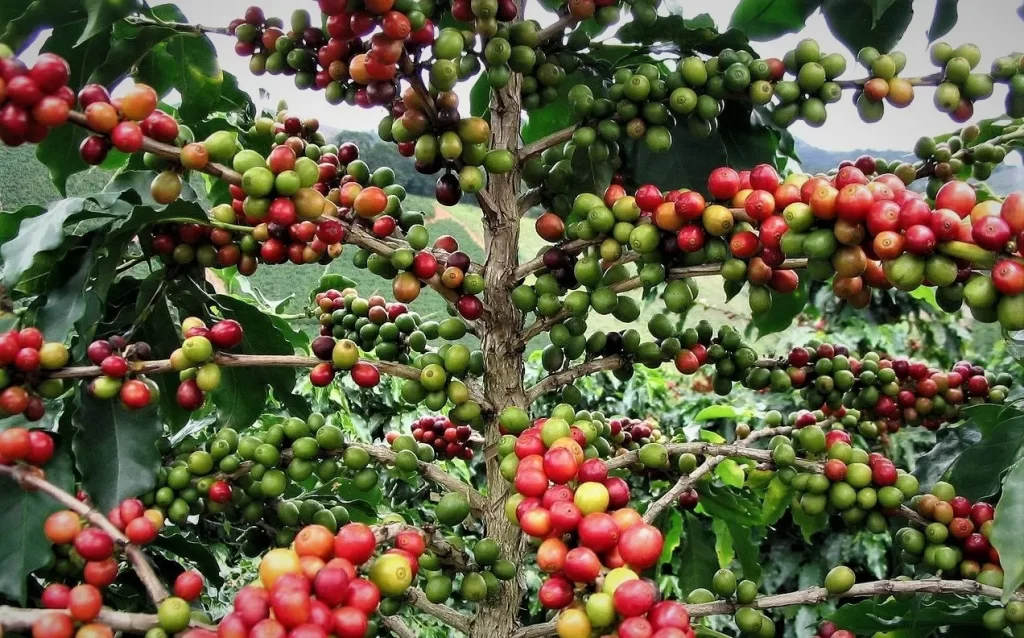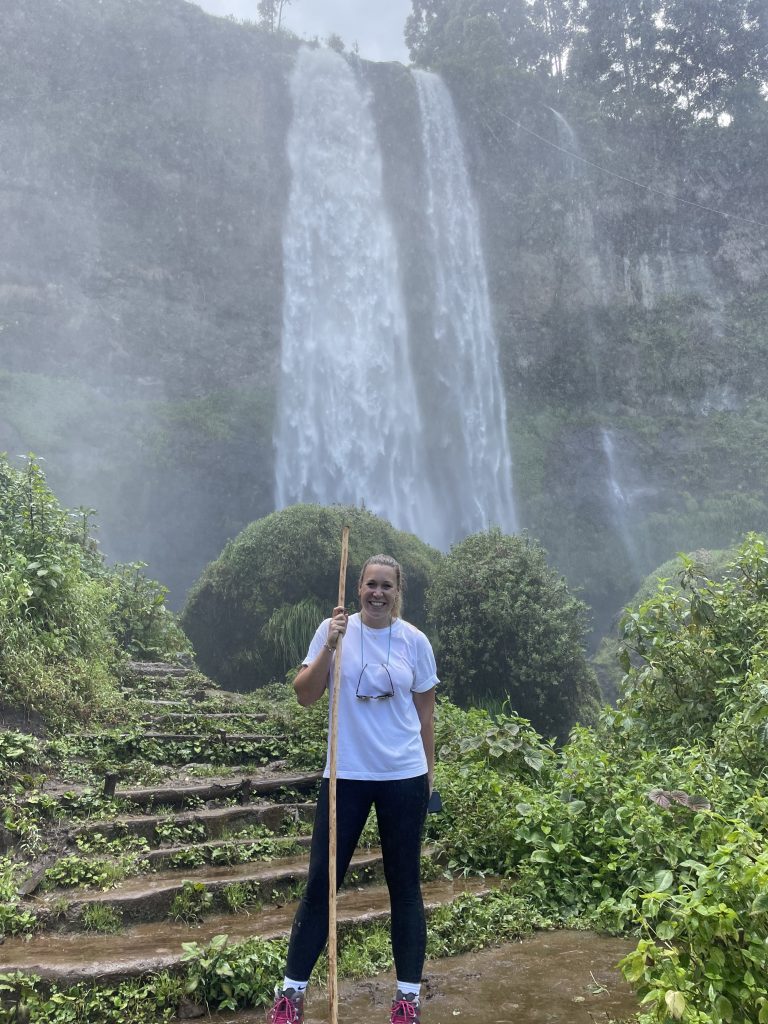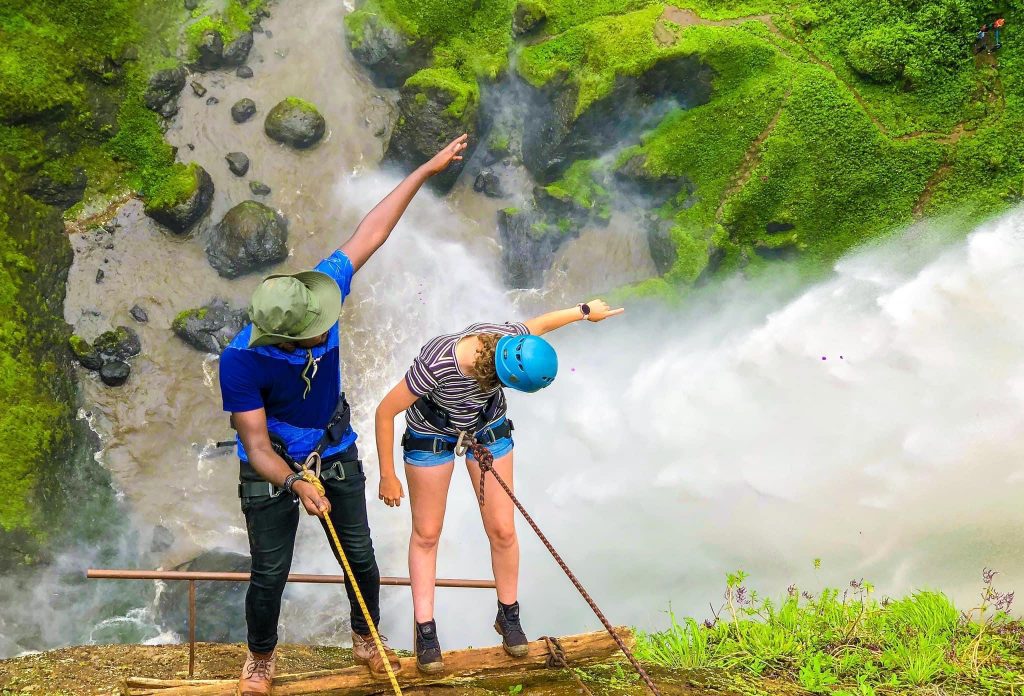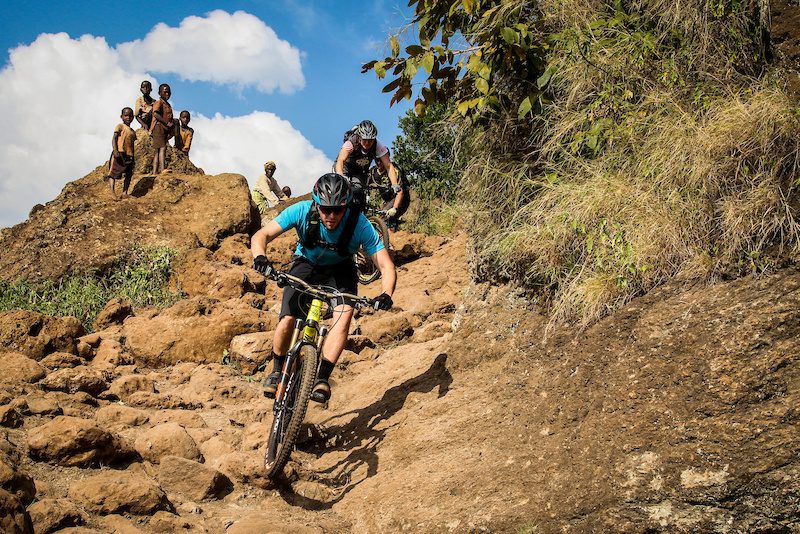Sipi Falls Coffee Tour
The Sipi Falls coffee tour is one of the most unique experiences that Uganda Safari visitors to Eastern Uganda have enjoyed and participated in. This is in the vicinity of Sipi Falls, which is well-known for its locally grown Bugisu Arabica coffee. Bugisu Arabica grows only between 1,600 and 1,900 meters above sea level. Coffee tours are led by guides who are knowledgeable about coffee farming, processing, and roasting.
The Sipi Falls coffee tour will provide you with a master-class experience. From visiting a nursery bed to learning how long it takes to grow within the nursery bed to planting some coffee seedlings, there is something for everyone. We then proceed to the opposite side of the coffee plantation to inspect mature coffee trees and harvest some red coffee cherries. You will then learn about pulping, drying coffee beans, pounding or grinding the dry coffee beans, winnowing, roasting, and then how to make the final coffee powder after roasting. Don’t pass up the brewing and drinking experience with a few cups of coffee (cappuccino).
As a move to help the local farmers, you can buy some coffee to take home with you. This coffee tour benefits farmers who are proud to demonstrate their expertise in coffee production. You will also get a glimpse into the lives of the people who live in the Sipi region.
Sipi Falls Coffee Tours
4 Days Jinja and Sipi fallsCoffee Tour
Detailed Sipi Falls Tour
The tour begins with an explanation of the origins of coffee in Uganda, which is both true and legendary. You’ll discover how Ethiopian monks discovered the beverage and transported it across the Rift Valley to central Africa. Meanwhile, word spread about the magical drug that could keep people awake, and it became a valuable commodity on trade caravans traveling through Yemen — and then to the rest of the world.
Following that, you’ll get to practice planting, transplanting, and picking coffee. You’ll get to see plants at various stages of development and help with farm chores. You’ll discover why the best coffee is shade-grown, and you’ll gain a new appreciation for the amount of effort that goes into producing those single-origin beans you find in third-wave cafes back home. After that, you’ll say goodbye to the farmer and walk over to your accommodation, most probably Sipi River Lodge. The lodge has one of the most extensive roasting operations in the region. You’ll shell, roast, and grind your beans by hand in small batches here.
Finally, the tour concludes with a cup of freshly roasted coffee. If there’s any left you can take it home as a souvenir. The Sipi Falls Coffee Tour costs $12 per person plus a small tip for your guide and lasts approximately three hours.
What to know about Arabica coffee:

Arabica coffee grows well in the fertile volcanic soils that are usually found along the slopes of volcanic mountains, this makes the Mbale region a great area for this kind of coffee. The coffee here is typically grown on farms that also grow food crops for domestic consumption such as beans, peanuts, and bananas. It is primarily grown under shade trees, which ensures long-term coffee production. The fallen leaves from the shade trees serve as manure for the coffee plants. They also serve as mulches that help to control weeds in the coffee gardens.
Arabica coffee is planted in Mbale between March and April and harvested between August and November. Before the planting season, the coffee trees are pruned from December to February. During the dry season, the trees bloom.
Other activities to do while on a Sipi Coffee tour
Hiking:
While at Sipi, you can do other optional activities like hiking. This is where walking sticks are provided to assist you on this hike. Hiking all three Sipi falls takes about three hours. Why come all the way here just to hike one trail? Allow three hours on your itinerary to see them all for a full-fledged experience.
The paths to the falls are about 7 to 8 kilometers long, with each hike offering a new adventure and new discoveries. You will be led by a professional tour guide who knows the ins and outs of the area as well as the best spots for panoramic views of the valley!


Abseiling:
This is one of the most daring adventure activities you’ll try on your trip. This is the activity for you if you are an adrenaline junkie but in a good way. It is a sport in which you use a friction device and rope to descend the slopes of steep rocks. This is also known as ‘rappelling.’
Abseiling companies with years of experience and training in this activity are ready to assist. For this safari adventure in Uganda, you are strapped into climbing ropes and harnesses. Following a few instructions, you will carefully abseil down alongside the main waterfall. You have two choices for descending: use a single rope managed by the guides at the top, or lower yourself at your leisure.
Biking:
Visiting a rocky and hilly area like the Sipi falls without biking should be considered a crime. But it’s not. Because not everyone enjoys bicycling.
There are numerous trails set up specifically for biking around Sipi River Lodge. Tracks that range from difficult technical rocky climbs to easier downhill routes.
The tracks provide more than just a biking opportunity; you can bike the lower sides of Mount Elgon and enjoy spectacular views of the coffee plantations, the three Sipi falls, the Sipi river, and the Kapchorwa plains. You can also ride your bike through the neighborhood to see how the locals live.

About coffee in Uganda
Coffee is one of Uganda’s most important cash crops, supporting many local people’s livelihoods and serving as one of the major sources of foreign exchange in the country. The Uganda Coffee Development Authority (UCDA), the government agency in charge of the sector, estimates that coffee production supports approximately 500,000 households. Arabica and Robusta coffee are the two main types of coffee grown in Uganda. Some areas in Uganda have also adopted the growing of the highly priced Nyasaland Coffee, though still on a small family scale.
Annual production is composed of 15% Arabica and 85% Robusta. Coffee has many other uses aside from being a primary source of income, and thus offers numerous opportunities for value addition investment. Coffee can be used to treat asthma, headaches, and Alzheimer’s disease. Coffee, as a stimulant, can prevent sleep, causing people to work longer hours. Coffee is also known to contain over 700 different compounds, making it useful in a variety of industries, particularly the chemical industry.






